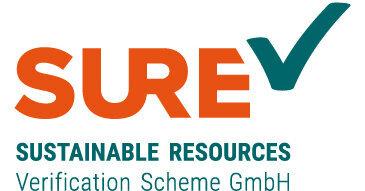Prospects and Pitfalls: Navigating the DR Congo-Rwanda Ceasefire in Central Africa
The recent ceasefire agreement between the Democratic Republic of the Congo (DRC) and Rwanda represents a pivotal moment for peace prospects in Central Africa’s Great Lakes region. This accord, while offering a hopeful pause amid years of conflict, is shadowed by deep-rooted animosities and unresolved disputes that continue to challenge its durability. As diplomatic negotiations gain momentum, the fragile truce’s success hinges on overcoming entrenched mistrust and addressing complex regional dynamics. The implications extend beyond bilateral relations, influencing local communities’ welfare and shaping geopolitical stability across Central Africa.
Obstacles Threatening the Longevity of the DR Congo-Rwanda Truce
Despite formal commitments to halt hostilities, maintaining peace between DRC and Rwanda remains an uphill battle. A primary barrier is the enduring suspicion each country harbors toward the other-a legacy of decades marked by conflict, displacement, and competing political interests. Compounding this are active armed factions operating within eastern DRC’s volatile provinces; notably, groups like M23 persistently destabilize efforts at reconciliation through sporadic violence.
The humanitarian fallout from these clashes continues unabated: thousands remain displaced as villages endure repeated attacks or become collateral damage in cross-border skirmishes. According to recent UN reports from early 2024, over 5 million people in eastern DRC face food insecurity exacerbated by ongoing insecurity.
Political undercurrents within both nations further complicate peacebuilding efforts. In Rwanda, rising nationalist rhetoric bolsters calls for assertive military postures against perceived threats from rebel groups allegedly supported by DRC-based actors. Conversely, Kinshasa grapples with internal factionalism that hampers cohesive policy-making or sustained engagement with Kigali.
- External Influences: Regional powers such as Uganda and Burundi play ambiguous roles-sometimes mediating but at other times fueling tensions through proxy support.
- Humanitarian Access Constraints: Persistent insecurity restricts aid agencies’ ability to deliver essential services to vulnerable populations.
- Sustained Dialogue Mechanisms: Continuous negotiation platforms are vital for building trust beyond mere cessation of violence.
The Role of Diverse Stakeholders in Cementing Peace
A lasting resolution demands inclusive participation from a broad spectrum of actors beyond just government officials from DRC and Rwanda. Regional bodies like the African Union (AU) alongside international organizations such as the United Nations must actively facilitate dialogue frameworks that incorporate civil society voices-especially those representing displaced persons, women’s groups, and youth leaders who bear disproportionate impacts from conflict.
| Stakeholder Category | Contribution to Peace Process |
|---|---|
| Bilateral Governments | Create policies fostering reconciliation; enforce ceasefire terms; |
| Civil Society & NGOs | Mediators advocating community needs; promote grassroots reconciliation; |
| < strong > International Bodies strong > td > < td > Provide mediation expertise; fund humanitarian relief programs; monitor compliance; td > tr > < tr > < td > Local Populations td > < td > Share lived experiences; participate in peacebuilding initiatives at community level; td > tr > tbody > table > The synergy among these stakeholders can transform ceasefires into durable agreements by addressing root causes such as land disputes, resource competition (notably over minerals like coltan), ethnic grievances, and governance deficits that have historically fueled cycles of violence in eastern DRC. Tactical Approaches for Enhanced International Support in Conflict ResolutionThe global community’s role remains critical in reinforcing this fragile peace process through strategic interventions tailored to local realities. Establishing transparent communication channels among all parties will reduce misunderstandings while fostering accountability during implementation phases. An effective international strategy should include:
This comprehensive approach aligns diplomatic efforts with tangible improvements on the ground-essential steps toward breaking entrenched cycles where insecurity breeds poverty which then fuels further unrest. A Glimpse Ahead: Evaluating Prospects for Enduring StabilityThe newly brokered ceasefire between DRC and Rwanda marks an important milestone but not an endpoint in resolving protracted conflicts within Central Africa’s Great Lakes region. The path forward requires unwavering commitment from both governments coupled with robust backing from regional partners including East African Community members alongside global stakeholders like EU donors who have recently increased funding for stabilization projects across eastern Congo.[2024 UNDP Report] If successfully implemented-with mechanisms ensuring inclusivity across ethnic lines plus transparent governance reforms-the agreement could herald a transformative era characterized by reduced violence levels (currently down approximately 30% compared to 2023 figures), improved humanitarian conditions for millions affected populations,[OCHA Data],and renewed confidence among investors eyeing mineral-rich regions long plagued by instability.[World Bank Analysis]. The coming months will be decisive: whether this ceasefire evolves into sustainable peace depends largely on bridging historical divides through genuine dialogue supported by coordinated international engagement focused equally on security guarantees as well as socio-economic development opportunities for affected communities throughout eastern DRC borderlands. |

